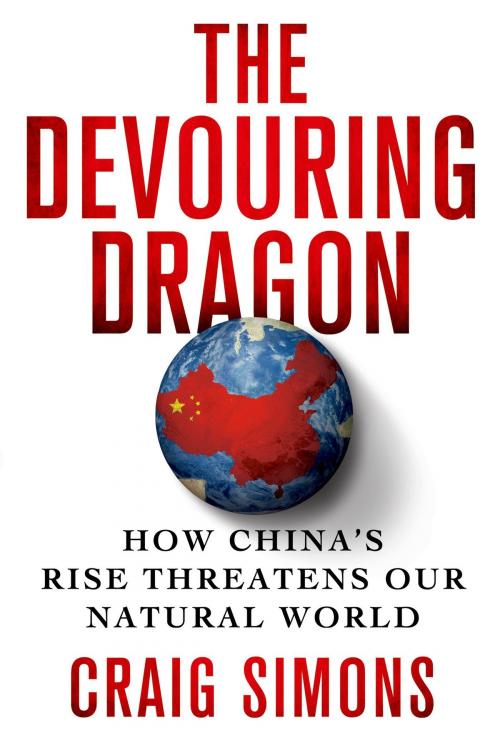The Devouring Dragon
How China's Rise Threatens Our Natural World
Nonfiction, History, Asian, China, Science & Nature, Nature, Environment, Environmental Conservation & Protection| Author: | Craig Simons | ISBN: | 9781250023186 |
| Publisher: | St. Martin's Press | Publication: | March 12, 2013 |
| Imprint: | St. Martin's Press | Language: | English |
| Author: | Craig Simons |
| ISBN: | 9781250023186 |
| Publisher: | St. Martin's Press |
| Publication: | March 12, 2013 |
| Imprint: | St. Martin's Press |
| Language: | English |
China's rise is assaulting the natural world at an alarming rate. In a few short years, China has become the planet's largest market for endangered wildlife, its top importer of tropical trees, and its biggest emitter of greenhouse gases. Its rapid economic growth has driven up the world's very metabolism: in Brazil, farmers clear large swaths of the Amazon to plant soybeans; Indian poachers hunt tigers and elephants to feed Chinese demand; in the United States, clouds of mercury and ozone drift earthward after trans-Pacific jet-stream journeys. Craig Simons' The Devouring Dragon looks at how an ascending China has rapidly surpassed the U.S. and Europe as the planet's worst-polluting superpower. It argues that China's most important 21st-century legacy will be determined not by jobs, corporate profits, or political alliances, but by how quickly its growth degrades the global environment and whether it can stem the damage. Combining in-depth reporting with wide-ranging interviews and scientific research, The Devouring Dragon shines a spotlight on how China has put our planet's forests, wildlife, oceans, and climate in jeopardy, multiplying the risks for everyone in our burgeoning, increasingly busy world.
China's rise is assaulting the natural world at an alarming rate. In a few short years, China has become the planet's largest market for endangered wildlife, its top importer of tropical trees, and its biggest emitter of greenhouse gases. Its rapid economic growth has driven up the world's very metabolism: in Brazil, farmers clear large swaths of the Amazon to plant soybeans; Indian poachers hunt tigers and elephants to feed Chinese demand; in the United States, clouds of mercury and ozone drift earthward after trans-Pacific jet-stream journeys. Craig Simons' The Devouring Dragon looks at how an ascending China has rapidly surpassed the U.S. and Europe as the planet's worst-polluting superpower. It argues that China's most important 21st-century legacy will be determined not by jobs, corporate profits, or political alliances, but by how quickly its growth degrades the global environment and whether it can stem the damage. Combining in-depth reporting with wide-ranging interviews and scientific research, The Devouring Dragon shines a spotlight on how China has put our planet's forests, wildlife, oceans, and climate in jeopardy, multiplying the risks for everyone in our burgeoning, increasingly busy world.















